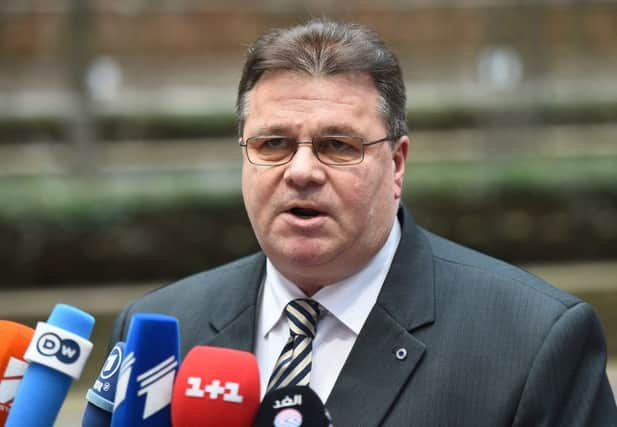Lithuanian fury over Russian cable ‘interference’


Lithuania claimed Russia was trying to interfere with the laying of the cable that would bring energy from Scandinavia and reduce dependence on its mighty neighbour for electricity.
The accusation came just days after the Finnish navy dropped depth charges as a warning after detecting an underwater craft, presumed to be a Russian submarine, in its territorial waters just off the coast of Helsinki. Earlier this year Sweden conducted a massive maritime hunt after also detecting an underwater vessel in its waters.
Advertisement
Hide AdAdvertisement
Hide AdLithuania said it had summoned Moscow’s ambassador to its capital Vilnius and delivered notes of protest over what it described as repeated Russian interference in the cable-laying process. Vilnius said in one incident Russian military ships demanded the merchant vessels laying the cable move out of the way because they wanted to conduct a naval exercise.
Adding to Lithuania’s ire was that the incidents took place in waters considered its “exclusive economic zone” by a treaty it signed with Russia 12 years ago.
“This is completely unacceptable and in violation of the United Nations Law of the Sea Convention,” said Lithuanian foreign minister Linas Linkevicius.
“We will demand that Russia abides to its international commitments, and I think the international organisations we belong to will also demand this because this is a matter of safe navigation. It is not just a concern for Lithuania alone, as ships of other countries also sail in the economic zone,” he continued, adding that all information would be shared “with our Nato allies”.
Sweden supported its Baltic neighbour by claiming Russia was breaking international law.
After all the protests, Lithuania said it had received neither explanation nor a response from Russia. Mr Vilnius reported the Russian ambassador as saying he would look into Moscow’s position but nothing more.
As a possible explanation for the alleged interference, the Lithuanian foreign ministry issued a statement claiming the Russian navy was trying to “hinder the laying of the NordBalt cable”.
When completed, the cable will plug Lithuania into Sweden’s national grid, thus reducing the former Soviet republic’s energy dependency on its old colonial master.
Mr Linkevicius said: “Everything is going as scheduled, and the project will definitely not be affected, however, hindering work is unacceptable.”